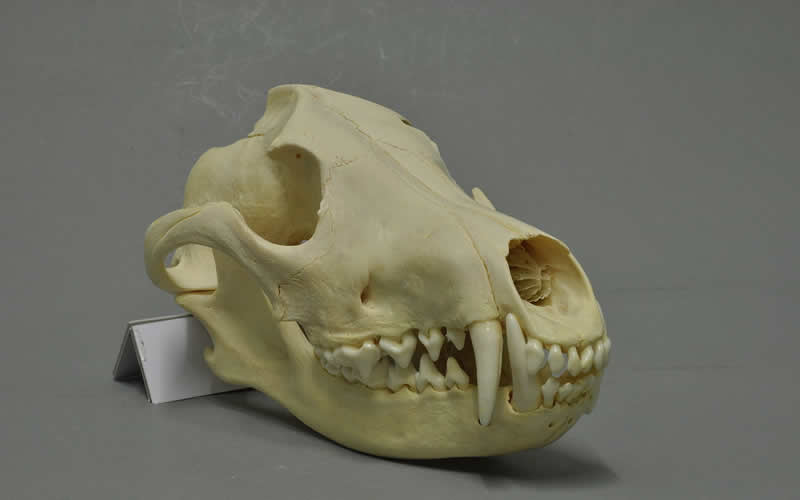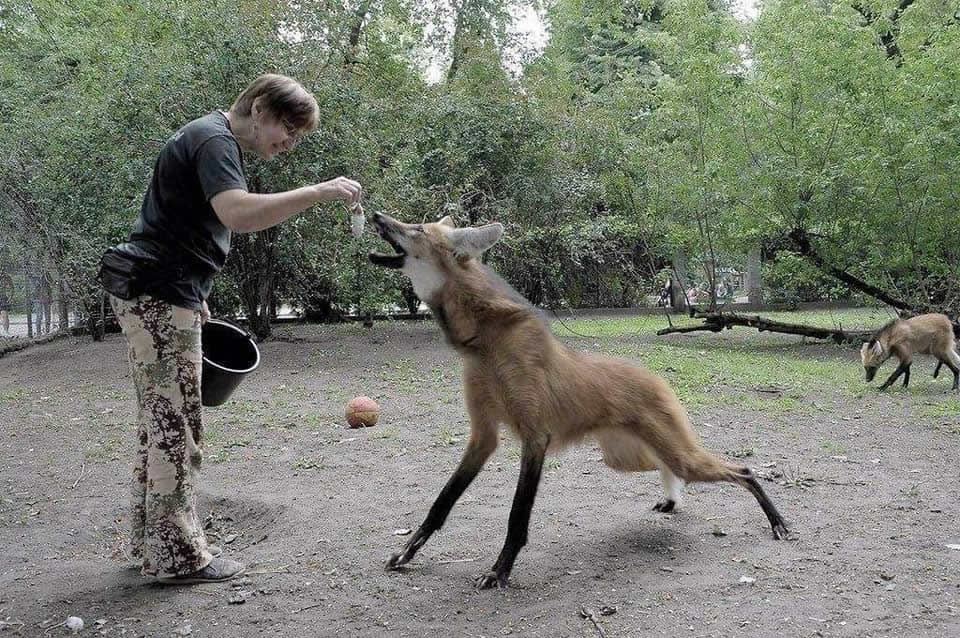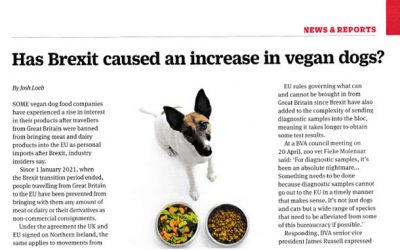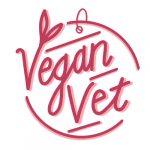Should this beautiful animal change the way we think about our dog’s nutrition?
This striking animal shown here in captivity; is a maned wolf (Chrysocyon brachyurus) and it is the largest canid in South America.
His marks resemble those of foxes, but he is not a fox or a wolf. It is the only species of the genus Chrysocyon (which means “golden dog”).
Although the maned wolf displays many fox-like characteristics, it is not closely related to foxes. It lacks the elliptical pupils in its eyes found distinctively in foxes. The maned wolf’s evolutionary relationship to the other members of the canid family makes it a unique and fascinating animal.
Why should a maned wolf hold the key to our dog’s nutrition?

The skull of a maned wolf almost identical to that of our dog’s skull. As it does not kill or eat large prey, its upper carnassials (shearing teeth) are reduced, its upper incisors weak, and its canines are long and slender.
The maned wolf really blows the theory of our pet dogs needing meat in their diet completely out of the water. These beautiful and endangered ‘golden dogs’ (as they are neither fox nor wolf), share far more in common with our own pet dogs than the grey wolf.
They are classed as omnivores and live in the savannah of South America where they feed primarily on wolf apples that belong to the family Solanum – the same family as potatoes and tomatoes. These fruit are also eaten by humans in South America, but the maned wolf plays a very important role in the seed dispersal of these fruits.
Often, maned wolves defaecate on the nests of leafcutter ants. The ants then use the dung to fertilise their fungus gardens, but they discard the seeds contained in the dung onto refuse piles just outside their nests. This process significantly increases the germination rate of the seeds. They live beautifully in harmony with their environment and this delicate balance must be maintained.
They do hunt at night (typically small rodents and rabbits) but more than 50% of their diet is fruit and vegetable matter. Animals are more often consumed in the dry season as their first choice is vegetables!
Their eyes are similar to our dogs, they lack the jaw strength to be strong hunters (like our domestic dogs) and their footprints are very similar to our dog’s prints. They are parasitised by the same ticks and fleas as domestic dogs and they are also prone to catching the same viruses that we vaccinate our pets against. Their gestation period is the same length and when pups are born, they are born blind initially like our pups and the mother will regurgitate food for her young pup and teach it to forage from as young as 3 months old so their diet of vegetable matter begins as early as that.
As they are an endangered specie, they are successfully bred in zoos around the world. If they are incorrectly fed a high meat diet, they develop bladder stones – something seen commonly in our domestic dogs too! Interestingly, they also have very pungent smelling urine which is used to mark their territories and some people liken the smell of their urine to hops or cannabis. The responsible substance very likely is a pyrazine, which also occurs in plants (at the Rotterdam Zoo, this smell once set the police on a hunt for cannabis smokers!)
This beautiful and fascinating ‘golden dog’ surely holds the key to our dog’s nutrition and strengthens our belief that we should be adopting a plant-based diet for our dogs as the kindest and healthiest option possible. If not for our own dog’s health, then surely for the health of the South American savannah so that less land is used up by deforestation for meat agriculture and these endangered species can continue to live in perfect harmony with their environment.

Prof Andrew Knight Interview
Vegan vet Arielle interviews Prof Andrew Knight and is a little starstruck!
Celebrities choose vegan dog food
Lewis Hamilton speaks only of the health benefits to his dog Roscoe – he is not endorsing any products
New Scientist Publishes Article About Vegan Dogs
Yet again, we have proof that we are now entering a world of positive change for plant-based diets in our pets,
Our Plant-Based Dog Nutrition Course Launches!
“I have also signed up for your Plant-Based Dog Nutrition Course – it is so interesting and informative, I’m buzzing!”
The winds of change
I feel that we are all about to fast forward into a world that we care about far more deeply than ever before
From Controversy To Front Page Tabloid News
Look just how far vegan dog food diets have come in 10 months – what a positive turnaround!
Vegan Dog Food Panel Discussion
“You were both so eloquent and knowledgeable. It gives me such hope for the future and for the growth in this particular market”
Highs and lows of a scorching July
I have personally found this month both extremely challenging and overwhelmingly rewarding as JUST BE KIND is able to expand
Pets At Home sell plant-based dog food!
Wainwrights is Pets at Home own brand, and this week they launched a plant-based food throughout all their stores - both tinned and dry food. Read our full review of it here....
Vegan Campout
We were lucky enough to attend Vegan campout this year along with thousands of like-minded people
What about DCM with vegan dog food?
The Vet Times published these very important findings on the front page of the July issue of the Vet Times magazine
Has Brexit caused an increase in vegan dogs?
Read article published in May issue of Vet Record about the new EU regulations and taking dog food to the EU















